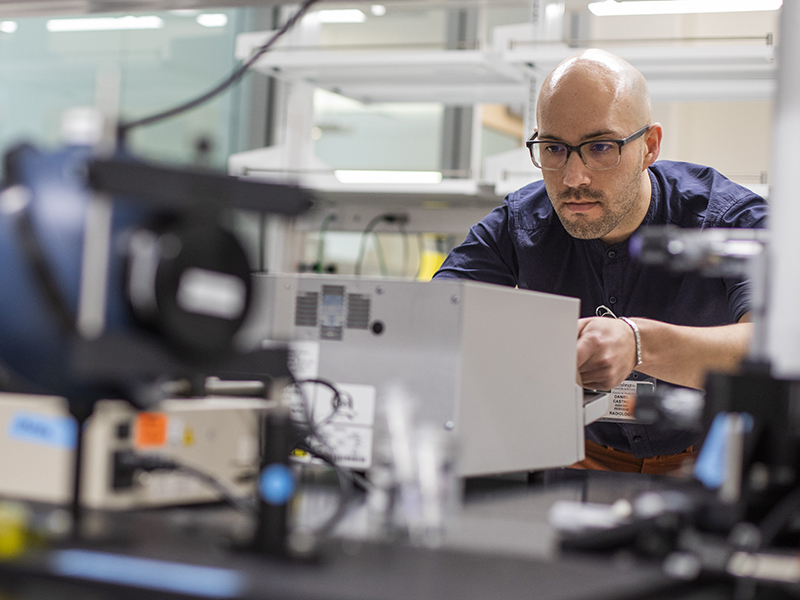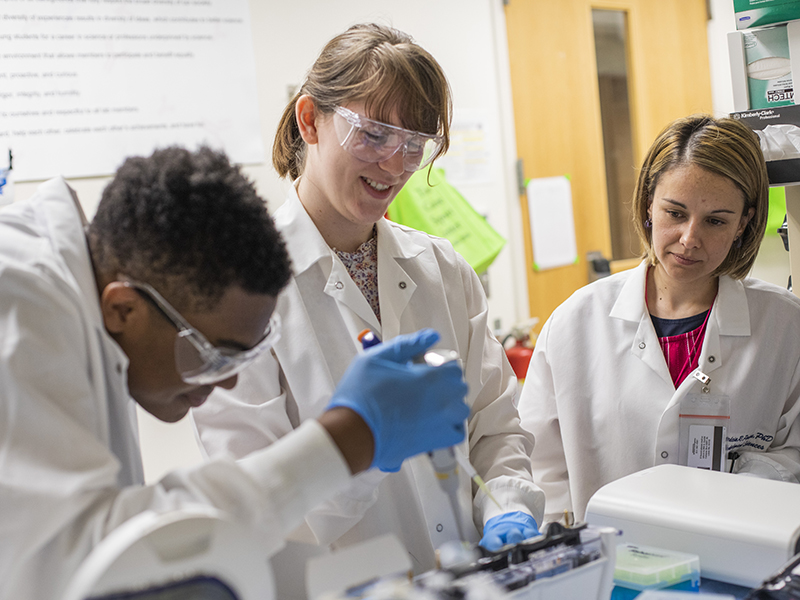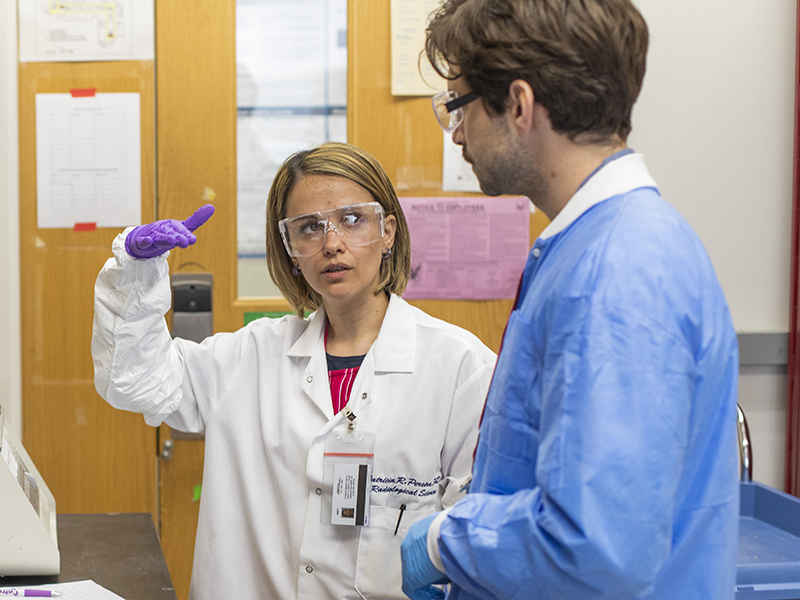Daniel C. Castro, PhD
Biophotonics Research Center
During his undergraduate studies, Castro was initially interested in the biopsychology behind questions like why food tastes good — essentially, what makes us perceive something as “good” or “bad” and how that’s reflected in the brain. But as he dove deeper, he began to focus on the underlying biology of endogenous opioids, a major player in mediating this phenomenon, and how the human body’s inherent opioid systems are supposed to function. Ultimately, his goal is to help develop more effective treatments for those suffering from substance use disorders, neuropathic pain or diabetes.

To understand how complex neuropeptides function in endogenous and pathological states, Castro uses an array of advanced optical tools such as 3D anatomical mapping, fiber photometry and optogenetics. He says opioid research has been pigeonholed to their connection to euphoria or analgesia, but not their fundamental mechanisms. Castro also notes the lack of effective tools to see how these opioids function. One big-picture goal of his is to help create a system to see opioids with high spatial sensitivity and temporal resolution in different kinds of tissues, for example, the pancreas, brain or intestines.
Outside of the scope of his research, Castro wants to raise the flag for his fellow LGBTQIA+ scientists and create an environment where they feel like they belong and thrive in their work — especially given current threats to their fundamental rights, he emphasizes. Our backgrounds inform our perspectives, and the more perspectives brought into a space, the more intellectually exciting your environment is, he says.
Patrícia M. Ribeiro Pereira, PhD
Precision Radiotheranostics Translation Center
Ribeiro Pereira studies the complex and dysregulated biological processes of tumors. Drug resistance at the early stages of disease poses a significant challenge to effective cancer therapy, so she studies early molecular changes in tumors and their drug resistance mechanisms to develop strategies that can reverse them. Driven by a passion to understand the intricacies of tumor biology, Ribeiro Pereira hopes to identify new drug targets and treatment strategies to help develop more personalized and effective cancer care for patients.

To achieve this goal, Ribeiro Pereira is focused on developing more precise and specific molecular imaging techniques to help understand biological processes in cancer cells. She uses PET tools and imaging to provide real-time, whole-body visualizations of how tumors respond to therapy. This insight into the mechanisms that lead to resistance allow adjust treatment plans accordingly. Some of her current projects include developing tumor-targeting biomolecules that enable effective drug delivery and studying receptor membrane dynamics and regulation. The latter may be a key biological mechanism underlying resistance to immunotherapies and other tumor-targeted therapies.
In addition to her scientific work, Ribeiro Pereira values her role as a mentor and strives to empower her mentees by providing support and opportunities to help them achieve their career aspirations. She aims to build a space where scientific achievement and equity go hand-in-hand, and where trainees from diverse and underrepresented backgrounds have equal opportunities to succeed in the field.
Published in Focal Spot Spring/Summer 2023 Issue

